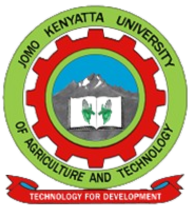Students from eight Kenyan universities convened at Jomo Kenyatta University of Agriculture and Technology, Karen Campus for the inter-university Moot Court Competition on March 22, 2024. The event saw students participate in a mock court session presided over by practicing judicial officers – in an effort to highlight the enduring challenges of human trafficking and child abuse.
The students had to handle a hypothetical case in which a 15-year-old Guyo was subjected to child labour after being trafficked into a neigbouring country through a recruitment bureau. Guyo was repeatedly physically assaulted by her employer, underpaid, starved and finally thrown out of the employer’s house at night.
Through the help of a good Samaritan, Guyo recorded statement at the nearest police station and with the help of Amka Africa Justice Initiative, was later taken in by a child rescue centre. A year later, with little action by the state to secure Guyo’s rights, Amka Africa Justice Initiative with other partners working on human trafficking, modern slavery and child domestic labour, sought legal redress on behalf of Guyo.

Dr. Antony Kirimi Director, Academic Affairs, welcomes participants to Karen campus
The moot court participants were therefore required to prepare submissions on behalf of Amka Africa Justice Initiative and on behalf of the Government. In each instance, parties to the case were to deal with jurisdiction, substantive issues, and appropriate remedial order(s).
In explaining the context of the moot court competition, Milka Wahu Kuria who teaches law at JKUAT School of Law noted that Africa has the highest number of child labourers than the rest of the world combined.
“The emerging issues of child labour, human rights and human trafficking have become a major concern in today’s world yet the law has not evolved first enough to arrest the situation,” Wahu said.
The event, was therefore part of JKUAT Law School’s efforts to raise awareness among the upcoming lawyers to understand real societal issues beyond what is ordinarily taught in law schools.
“The aim is to improve the participants’ legal capacity to understand issues beyond the curriculum and advocate for changes in the legal space to effectively respond to the emerging and enduring challenges,” Wahu said.

The three-judge-bench follow submissions by the parties
Khadija Hassan who studies law at JKUAT who participated in the moot court for the first time said that the event was very educative and improved her litigation skills.
“The event has given us the opportunity to practice law in front of senior legal officers and it has opened our eyes to the fact that any person can fall victim of human trafficking,” said Khadija.
Lynn Onunga, Assistant Director of Public Prosecutions, who played the role of a judge in the moot court said the activity exposed students to real legal practice.
“It engages them and show how skilled they are, how to manage their time and how to conduct themselves while in court. It also raises the confidence of the students,” Onunga said.


Leave a Reply